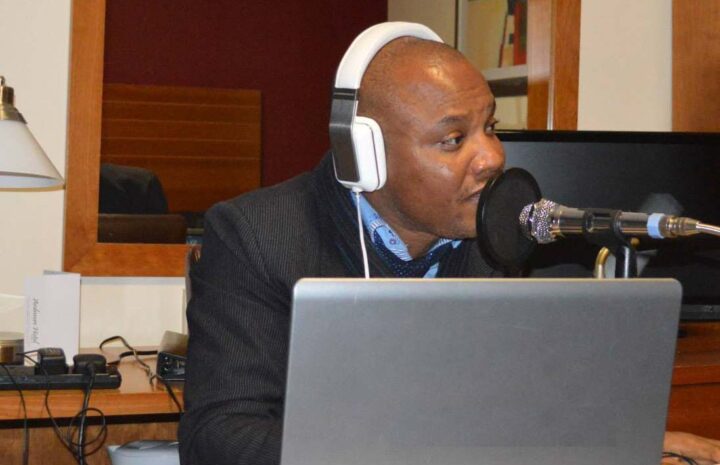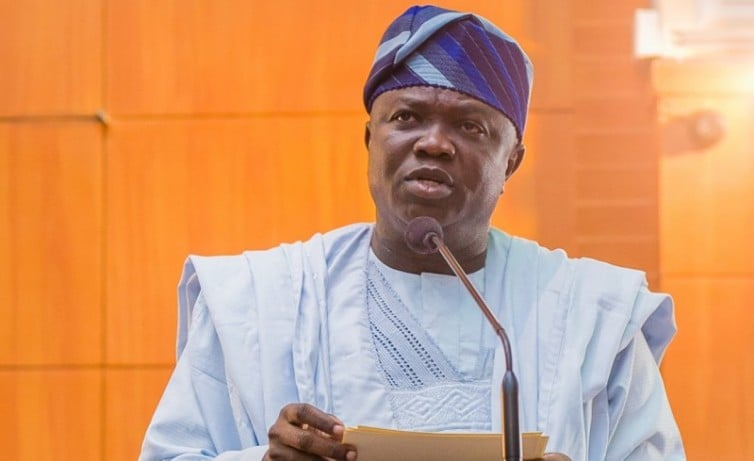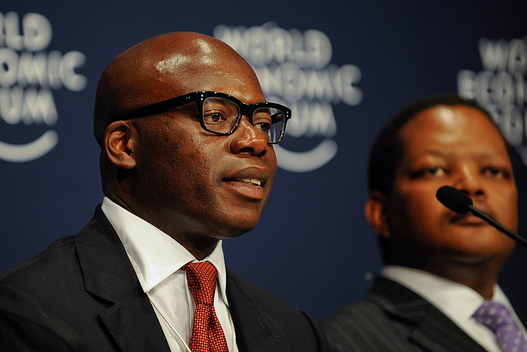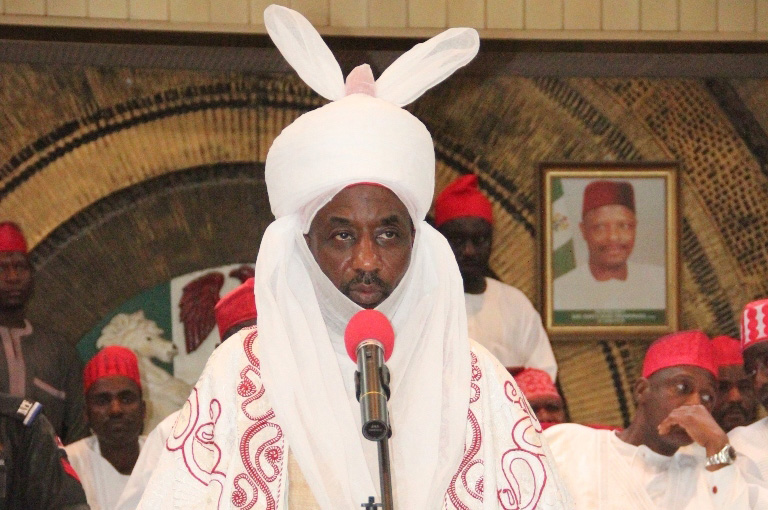Over the years, the annual lecture series of the foundation brings to bear issues that are germane to the development and wellbeing of human kind sometimes with specific focus on Africa’s development. While its topic of discourse is drawn from the themes of Emmanuel Onyechere Osigwe Anyiam-Osigwe on human existence and development, speakers at the session are persons who have an experiential knowledge of the topic of discourse having held apex position in governance and administration or have distinguished themselves in specific fields of endeavor.
The benefit of this perspective is that discourses at the session transcends textbook theories and postulations that have largely not been tested. It offers us the opportunity to hear from personalities who have applied these theories and have the experiential knowledge to enlighten the audience on the limitation and strength of these postulations as we move from theory to praxis.
In the last two years, the foundation felt it has become necessary to have a colloquium preceding every other session of the lecture series. The colloquium, we feel, offers another avenue for the evolvement of further research materials on core developmental issues that are immediately germane; materials that enrich future references.
The topic of discourse at the 15th session of the Emmanuel Onyechere Osigwe Anyiam-Osigwe lecture series draws from the central theme: To Live in the Way that Honours: Incorruptibility; A spiritual Premise for Material Wellbeing. It is to be noted that the foundation had discussed corruption in its 11th session of the lecture series. This is the first time that a topic is being reloaded in the annals of the lecture series.
Advertisement
WHY WE ARE RELOADING CORRUPTION?
The African continent is burdened by an alarming level of economic poverty in the life of its citizenry. Governments in the continent have not been able to provide the necessary infrastructure that are catalytic to development initiatives and dynamics as well as benefit the wellbeing of the citizenry. In all aspects of life, the continent remains dependent. It has remained vulnerable to the institutions of imperialist incursion and manipulation and its dimension of multilateral corporate dominance.
Advertisement
In all of this, the African narrative of itself has been lost, as the continent has not generated the capacity to realise nor optimise its potentials. It citizenry has not been able to generate the requisite capacity to rediscover their identity. The African continent has been characterised as one that feeds on handouts both at the level of knowledge and at the level of economic survival.
In the face of the endowment of the continent in natural resources, the contradictions in which the continent thrives is appalling. In the case of Nigeria, a country, which is acknowledged to have the sixth largest oil deposits in the world, lags behind as one of the poorest countries in the world.
Advertisement
Deriving from the primal placing of corruption in the considerations of the electorate in the last presidential elections in Nigeria and the extent to which it influenced the final outcome of the election, it became critical in our evaluation that corruption should be revisited from a two-pronged approach.
First is to conventionally discuss corruption benefiting from the insight of person or persons in our out of government who will share his or her experiences in striving to tackle corruption. The second is to have a colloquium so that the academics, nay philosophers, will examine the concept of corruption in its various dimensions. Both perspectives underpin setting a rudder that will immensely contribute to the anticorruption project of the present government and that can be reviewed by any other country in the world in its anticorruption drive.
Advertisement
We note that corruption as a concept is, perhaps, of a more elaborate expression than the way it is presently categorised in the psyche of many people. It is our position that without a holistic interpretation of corruption in meaning and context, we cannot effectively address the anathema of corruption. It is in this context of meaning and form in the understanding of corruption that the academic exercise of this colloquium becomes exigent.
Advertisement
CORRUPTION AND AFRICA’S REGIONAL DEVELOPMENT
Distinguished ladies and gentlemen, while we acknowledge the determination of the Nigerian people to tackle the problem of corruption by voting in a president who has an anticorruption pedigree, we note that except the present government is provided with the appropriate rudder, its efforts at curtailing corruption might not achieve the appropriate depth.
Advertisement
We acknowledge the new resolve by some serving presidents in Africa to examine the records of their predecessors and ensure that corruptive indulgences are corrected and looted funds recovered. The ongoing process in Kenya in this regard conveys a new vista of hope for the African continent. With a sense of optimism, we hope that the present government in Nigeria will get it right. Its efforts, we hope, will reasonably situate the country on the path of development.
Advertisement
However, we opine that isolated dimensions as this can never engender development for the African continent. It is our perspective that any single country in the continent that achieves creditable poverty alleviation for its citizenry will suffer from the regressive impact of patronage by the citizenry of its immediate neighbouring countries and all other African countries from afar.
The uncontrollable influx from neighbouring countries will inevitably alter the relational scale between output, distribution and consumption. Its predictive outcome is the ephemeral dimension of the wealth experienced by the citizenry. Its inevitable aftermath is the xenophobic driven resistance that it will engender. Our submission is enriched by the immediate experiences offered by the South Africa uprisings about a year ago.
It is our position that isolated development will not avail us the scale of harmonious coexistence by which our synergistic potentials as Africans can establish us in a competitive placing or, in fact, guarantee us a leading place in the global order of races and nations.
We share in the postulation of Emmanuel Onyechere Osigwe Anyiam-Osigwe that Africa, ditto the black race were never created on the alter of inferior identity in relation to other races. While, we are presently straying from behind, with the amount of opportunities empirically situated in our geopolitical region and the mental resourcefulness of our people, with the right chemistry, Africa will rise up to take its place as the leading continent in the global order.
We salute the courage of the Nigerian people in the last elections. We also share in the optimism of our people that a brighter future awaits our country and all of Africa. We believe that if the damage arising from corruption can be curtailed, the socio-economic and political capital that evolves thereby will definitely rewrite the African story. The African dream must transcend mere dream states and attain the manifestation of an empirical reality.
However, we aver that an anticorruption disposition and the need to enthrone political leaders that have the acumen to evolve anticorruption initiative must be given regional expression. It is also our position that the various governments in the West Africa sub region should be enlightened on the miasma of corruption and how it can be curtailed.
It is with this vision that we made efforts to enlarge participation at this discourse beyond a Nigerian affair. It is our hope that our brothers from Cameroun and Ghana as well as our brother from South Africa will share with us in this vision and avail their resources in a synergy with our colleagues here in Nigeria towards enthroning a regional development agenda for the West Africa Sub Region and indeed the African region.
Although we gather here today under the theme of corruption, we note that the question of Africa’s development transcends corruption. In other words, corruption is just an aspect of the issues that undermine our development potentials.
Distinguished ladies and gentlemen, in all these, the academics must accede to our wake up call and rise to power. Especially, distinguished academics, the philosophers must provide the rudder and the leading light. We opine that there has never been development without the philosophical compass. Transcending the primitive stage of early human existence, development evolved from the contemplative insight of thinking minds in our early societies. Drawing from the early-recorded thoughts from Miletus through the various stages of the philosophical enterprise to the modern and post-modern discourses, development has always been driven by the deepened insight provided by the philosophical enterprise. Where philosophical thoughts and enquiries are absent, there is regression.
Distinguished ladies and gentlemen, I have attempted to avoid a detailed discussion of Anyiam-Osigwe on corruption, as I am confident that discussants here have the acumen to subject his submissions to critical appraisal. However, the question of corruption and the perverted psyche as espoused by Anyiam-Osigwe generates its own puzzles.
Drawing from Anyiam-Osigwe’s postulation that corruption is the contamination of the human essence and that corruptive indulgences are just practical or social manifestation of a perverted psyche, corruption becomes so inclusive in a dimension that shows how difficult it is to win the war on corruption.
In the war of corruption, a few things come to mind from the Anyiam-Osigwe thesis. The first is the role of the family in engendering corruption of the individual and the role of the family in engendering anticorruption initiatives. In the former, we draw attention to parents who sponsors examination malpractices for their wards at various tiers of our educational system. In the latter we capture the role of the family in its pristine form, nurturing and goading the child on the path of propriety or pious conduct.
No doubt this session will immensely benefit from the insightful critical review that will be offered by the quality of discussants here gathered today. Yet, we draw from Anyiam-Osigwe’s submission that the mindset factor is integral to the dimensions of human actions or manifestations. He acknowledges the dimension of the contamination of the human. Yet, he is optimistic that there could evolve a reformative process in which man can rediscover his being in its pristine form.
This, he argues, requires imbuing humankind with the requisite mindset in which the notion of integrity, value guided conduct and propriety underpins all form of human social and personal expression. Here, we draw from his perspective on strengthening the family holistically. Secondly, we draw from his placing of education as a basis for the cultivation of the requisite mindset in which nobility of character defines the human personality.
He notes that in the modern society, the children, Perhaps, spend more time at school than they spend at home. Therefore, a school curriculum in which the child is tutored on propriety as the defining integral of the human essence endows the child with the requisite mindset to uphold propriety as the tenets of worthy living. He argues that the educational system should be endowed with a school curriculum in which creative thinking and value-laden conduct is emphasised. This, he argues, should begin from the pre-school age of child development. His postulations on the Holistic Lifestyle Curriculum give concrete expression to his vision in this regard.
Anyiam-Osigwe’s perspective in this dimension ties into the recommendation of the United Nation that Philosophy be thought from secondary school levels. This recommendation acknowledges the optimum benefit of imbuing the individual with the capacity of deepened introspection and creative thinking from early childhood.
While we are encouraged by the anticorruption drive of the present government in Nigeria, we urge that focusing on moral rearmament and creative thinking with more emphasises on the younger generation underlines the sustainability and greater social impact of the current initiative. We opine that while arresting and prosecuting those who have looted the treasury of the country is consequent and motivating, the wider social impact of the anticorruption initiative is to generate a new set of Nigerians who intuit into propriety as a way of life due to the elevation of their contemplative aptitude and the critical genre it engenders.
We use this opportunity to call on the federal government to adopt the resolution of the United Nations on teaching Philosophy from secondary school level in Nigeria. We share in the vision of the Nigeria Philosophical Association on developing a curriculum on critical thinking, and ethics to be thought in our schools from pre-school (kindergarten levels) to the secondary levels.
It is our opinion that an institutional approach of these depths will sustain the current efforts of government towards curtailing corruption. Its neglect reduces every success of today to pyrrhic expression.
It is our vision to continue to strengthen our collaboration with the academic, the Nigeria Philosophical Association inclusive. We reassert our conviction that Africa’s development cannot be realised without a philosophical compass that intuits into the African peculiarities as a basis for an African based and African focused development paradigm.
We are humbled by the presence of Professor Extra-Ordinary Mogobe Bernard Ramose in our midst today to deliver the keynote address at this session. We are also very thankful to Professor Tangwa who has made great sacrifice to ensure his presence here with us today. Professor Tangwa joined the league of orphans when he lost his mother to death last Sunday at the age of 95 years. We wish mama heavenly glory in her transition to immortality.
As I conclude distinguished ladies and gentlemen, our gathering here today and tomorrow is geared towards provoking deepened contemplative insight on corruption in a manner that expatiate on its meaning and form. We trust that its appropriate interpretation is integral to generating the requisite tools towards attaining a corruption free social order.
We are confident that at the close of this session, its final outcome will immensely capacitate our governments with the appropriate understanding of what corruption is and how it can be curtailed.
Thank you and welcome one and all. I wish all of us fruitful session.
Anyiam-Osigwe, the new coordinator general of the Anyiam-Osigwe Foundation, delivered this address at a colloquium on corruption held at the University of Ibadan by the Department of Philosophy in collaboration with the Osigwe Anyiam-Osigwe Foundation.
Views expressed by contributors are strictly personal and not of TheCable.






